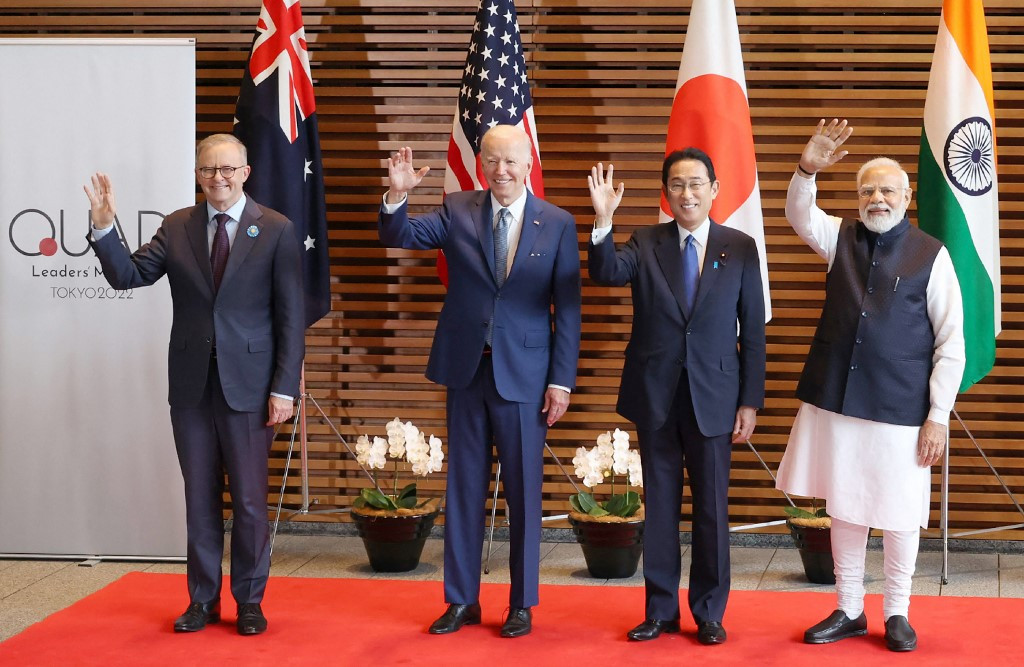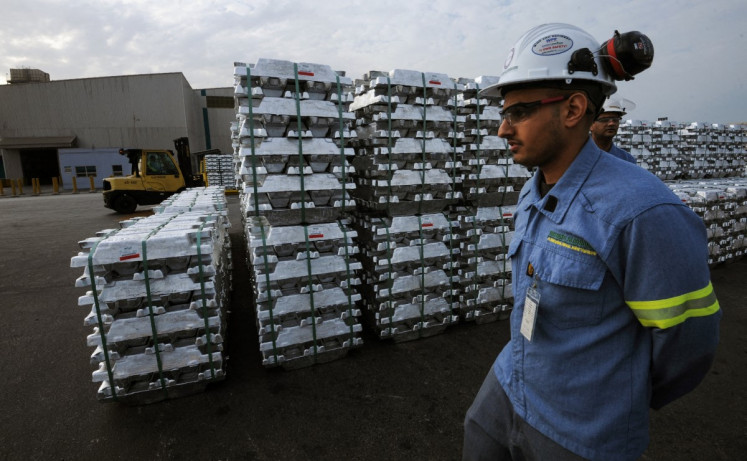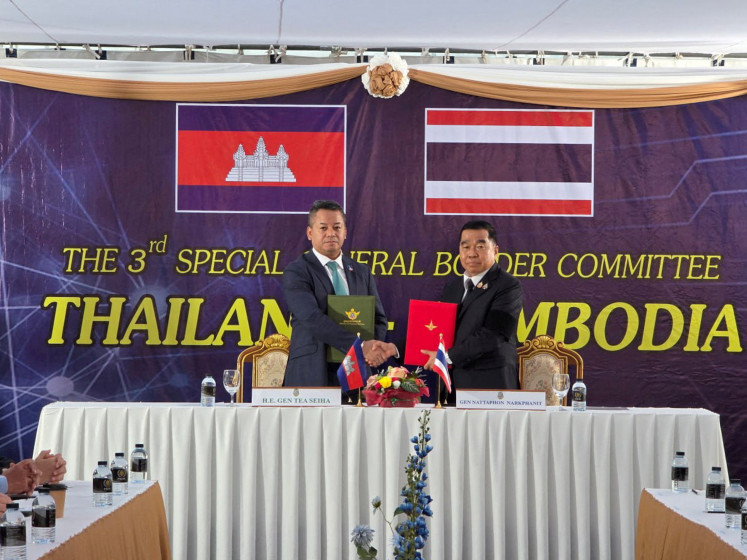Popular Reads
Top Results
Can't find what you're looking for?
View all search resultsPopular Reads
Top Results
Can't find what you're looking for?
View all search resultsCherry-picking Biden
For Biden, this was an opportunity to combine security and economic cooperation with the regional grouping, clearly with the ultimate goal of forming a multilateral force to contain China.
Change text size
Gift Premium Articles
to Anyone
M
ore exports to the lucrative United States market were all that Indonesia, along with six other members of ASEAN, expected when they attended the virtual launch of US President Joe Biden’s Indo-Pacific Economic Framework for Prosperity (IPEF) in Tokyo on May 23. Indonesia was represented by Trade Minister Muhammad Lutfi.
Indonesia and the other ASEAN members will try their luck to take advantage of the US' decreasing global power and influence and the rising and more assertive China. It is a gamble, which could end up costly.
The virtual conference followed the US-ASEAN special summit in Washington, DC on May 12-13. For Biden, this was an opportunity to combine security and economic cooperation with the regional grouping and clearly with the ultimate goal of forming a multilateral force to contain China. IPEF itself is not a free trade deal and there is no direct connection, at least officially, with security. It is difficult to deny that IPEF is more like a sweetener for interested participants to join the anti-China club.
Biden was in Tokyo to attend the second summit of the loose security pact of the US, Japan, India, and Australia — the Quad — and he hoped more countries would join the alliance. So far South Korea has shown its interest, while the US has reportedly listed the Philippines, Vietnam and Singapore as potential new members.
Biden hopes that with his economic framework offer it will be easier to lure ASEAN members to join the coalition to contain China, although the US refrained from mentioning China. “We’re writing the new rules for the 21st-century economy,” Biden said in his opening speech and added, “We are going to help all of our countries’ economies grow faster and fairer”.
In the meantime, his guests hope that the US will offer wider opportunities for developing countries to enter the giant US market, although they also know very well that the Biden administration stands little chance of meeting their wish due to strong resistance from the US public and corporations.
But still, the US market is too lucrative to ignore and it is worth the fight. Indonesia will continue to cherry-pick from the American offer.
Biden’s framework is said to offer flexibility and speed of negotiations. Participants are given the flexibility to choose from four pillars: Resilient trade (standards for the digital economy, the ethical use of artificial intelligence, labor and environmental standards), supply chain resilience (early warning systems, diversification efforts), climate and infrastructure or tax policy and anticorruption measures.
Participants of the IPEF launch were Brunei, Indonesia, Malaysia, Philippines, Singapore, Thailand and Vietnam along with New Zealand, Japan, South Korea, India, Australia and the US as the leader. They represent 40 percent of the world’s gross domestic product.
At the end of the meeting, the participants only agreed to “launch collective consultations toward future negotiations.” Participants have yet to decide which of the IPEF tracks they will join. It means the commitment is more like “a letter of intent”.
Of the 12 participants, 10 of them had signed the Regional Comprehensive Economic Partnership (RCEP) along with China. The world’s largest trade pact came into effect on Jan. 1 this year.
Indonesia has made an initial step to join the IPEF. It still requires long and complicated negotiations. So far, the incentives offered by the US are still far from the standard expectations of the ASEAN members, but it will not be a problem to cherry-pick the opportunities.











